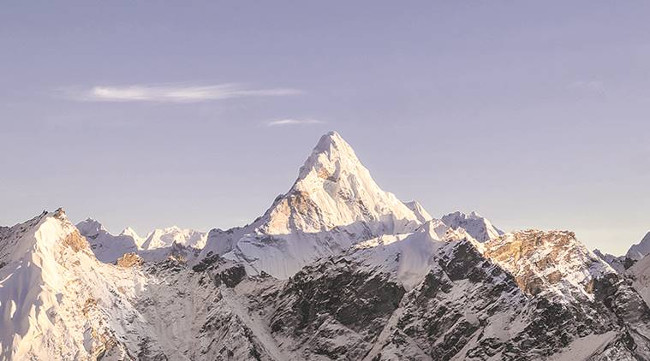Climbing Everest can lead to mental illness
The highest mountain in the world like Everest can actually cause mental disorders, according to a study.
A group from Eurac Research in Italy and Innsbruck Medical University in Austria investigated the stages of mental illness at extremely high altitudes and produced systematic scientific analyzes.
They discovered a new medical entity, named psychosis at a particular height. So far, doctors have assumed that such syndromes will accompany other acoustic, optical and olfactory hallucinations, with different organic causes.

They often occur with symptoms such as severe headaches, dizziness and loss of balance, such as side effects of cerebral edema at high altitudes."The highest mountains in the world are beautiful but can drive us to madness," said Hermann Brugger, director of the Mountain Regional Emergency Medicine Institute at Eurac Research.
The researchers cited the example of climber Jeremy Windsor when he climbed Mount Everest in 2008. Alone at an altitude of 27,000 feet, he met another man, named Jimmy, who gave encouragement and went. with him before disappearing without a trace.
"In our study, we found that there is a whole group of symptoms that are completely neurologic actually related to elevation including high-level cerebral edema, dehydration, infection or other Other organic diseases, " Brugger said. Elevated schizophrenia can occur at elevations above 7,000 meters above sea level.
Researchers can only speculate on the causes of this include: factors such as oxygen deficiency, psychological isolation of circumstances completely dependent on themselves and the swelling phase in some Certain areas of the brain may be triggers for mental illness.
These symptoms disappear completely as soon as climbers leave the dangerous area and get down the mountain and there seems to be no damage.
Katharina Hufner of the University of Innsbruck said: 'This syndrome increases the risk of accidents' . Brugger said : "It is extremely important that extreme climbers must be fully aware of these temporary phenomena ."
Researchers plan to partner with Nepali doctors by conducting further investigations in the Himalayas. They hope to list how often this disease occurs when climbing.
See more:
- Stop snacking if you don't want to be mentally ill
- Top 10 mysterious psychosis syndrome that the human brain can afford
- Nearly 80% of the risk of schizophrenia is due to genetics